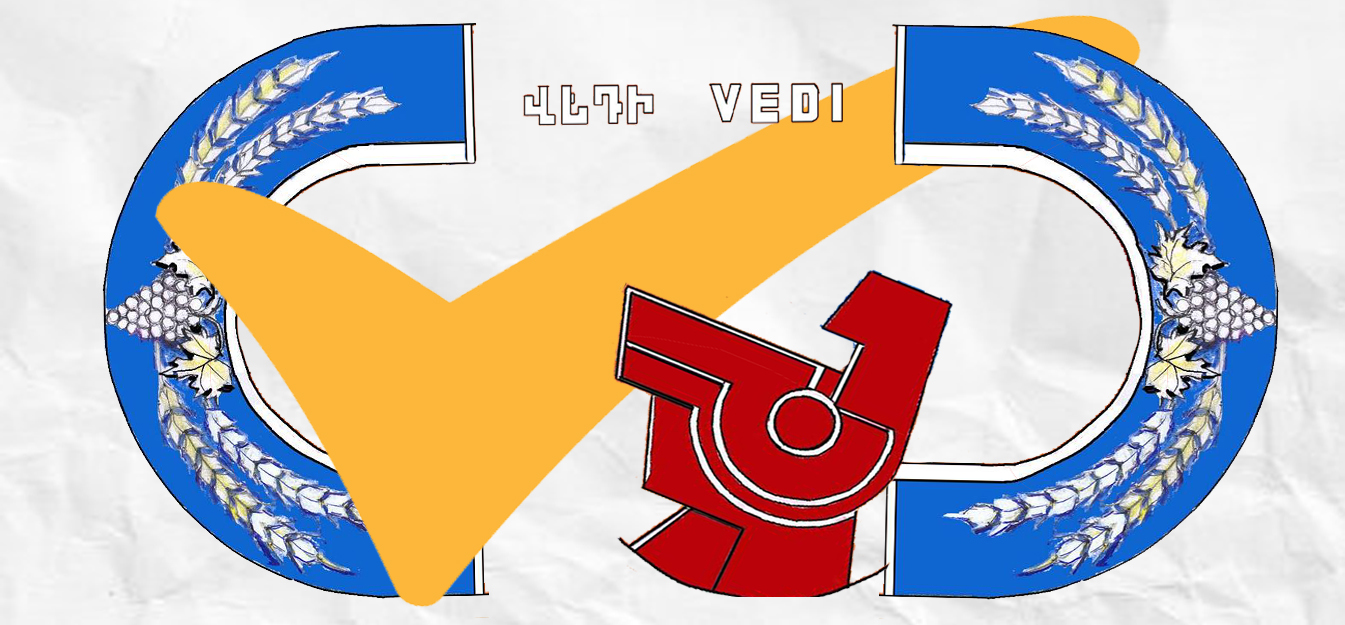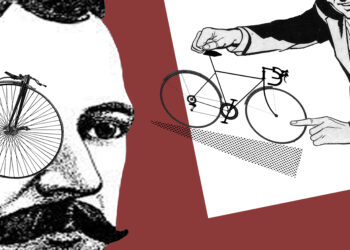

Normally, the municipal election that took place on March 27, 2022, to elect a new city council for the city of Vedi would not have attracted much attention. However, it highlighted a number of trends that are taking root in Armenia’s post-war political environment.
Vedi is a small city adjacent to the city of Ararat, in the region of Ararat, south of Yerevan. On its own, it numbers 9,000 registered voters (citizens over 18). In the fall of 2021, however, the municipality was amalgamated together with 18 adjacent villages to form a larger city of 37,000 registered voters.
The city had held its previous city council and mayoral election on September 18, 2016. The mayor Varuzhan Barseghyan, who had held the position since 1999, ran unopposed then. He was a member of the Republican Party of Armenia (RPA). For city council, 12 candidates (all men) ran for 11 available at-large positions. Five were members of the RPA, six were independents and one was a member of the Prosperous Armenia Party (PAP). With scarce competition, all were elected except for one independent.
Local councils in Armenia have a five-year term. The Electoral Code tasks the Central Electoral Commission (CEC) with setting up to four municipal election dates every year. It is up to the regional governor (marzpet) to announce a municipal election, but the Electoral Code mentions that it should be held on one of the four dates set by the CEC that is closest to the five-year expiry of the council’s term.
For Vedi, that should have been October 17, 2021. However, as the municipal amalgamation process was already underway at that point, and Vedi had already been slated to be merged with its neighboring villages, it would have been a waste of resources to hold an election under the old city boundaries on October 17, only to hold a new election for the amalgamated city just a few months later. Thus, the Ararat regional governor delayed the election until December 5, 2021, after the amalgamation was completed. The Electoral Code is not completely clear on whether regional governors actually have the legal discretion to make such delays, but because it made common sense, the postponement of the election in Vedi and many other cities and towns never became an issue. Certainly, it would have been preferable to pass the amalgamation bill in Parliament further in advance. It had been the subject of discussions for several years, but the post-war political crisis and early parliamentary election in June 2021 kept the generally unpopular measure on the backburner.
One consequence of the delay, however, was that the Civil Contract Party Government took advantage of the expiration of the five-year terms of mayors to replace incumbents before the new election took place. In other cities, the appointed interim acting mayors were often the candidate for the Civil Contract Party in the coming election.
Varuzhan Barseghyan was not seeking re-election on December 5, 2021. He was replaced on November 22, 2021, by Rafayel Hakobyan, who was also not one of the candidates in the election.
Whereas previous municipal elections used a majoritarian SNTV electoral system, 2021 marked the first time proportional representation was used to elect Vedi’s city council, after a series of reforms. Three political parties put forward candidate lists. The (ruling) Civil Contract Party (CCP) nominated Garik Sargsyan as its mayoral candidate. The My Powerful Community Party (MPCP), associated with the RPA and Armenian Revolutionary Federation (ARF), nominated Spartak Tartikyan, who was the incumbent mayor of Sisavan, one of the villages that had been amalgamated into Vedi. The Republic Party (RP, which is different from the RPA) nominated Gagik Hakobyan.
No single party won an outright majority. MPCP took the most votes, with 44%, winning 12 of 27 seats. CCP came in a close second with 39% and 11 seats, with RP holding the balance of power at 17% and 4 seats. Having multiple parties represented is the main feature of proportional representation. It is supposed to create the conditions where decision-makers search to find their common ground, where a partisan majority can’t be whipped into rubber-stamping a single leader’s wishes, and where council votes need to rely on debate to win over votes from the representatives of other parties. What makes the Vedi election so interesting is how clearly it demonstrates that such ideals were not realized following the December 5, 2021 municipal elections.
Following recent reforms, cities with over 4,000 registered voters no longer directly elect their mayor. Instead, that position is elected indirectly, by the members of the city council. For the mayor to be elected on the first ballot, they need a majority of the votes. In Vedi, that means getting support from at least 14 out of the 27 city councillors. If no candidate receives a majority, the top two candidates advance to a second round, in which the winner becomes mayor, whether they got to 14 votes or not.
With the December 5 results in Vedi, this dynamic made the Republic Party the kingmaker. If they voted for the CCP’s Garik Sargsyan, he would become mayor, for which they could negotiate some type of coalition agreement, including receiving the deputy mayor’s post. Likewise, they could support the MPCP’s Spartak Tartikyan, with the added caveat that Tartikyan would win in the second round in the event that the four RP city councillors abstained and decided not to vote for either of the two larger parties. Because the CCP and RP are closer ideologically, the RP could have even bargained hard and proposed that the CCP vote for their own Gagik Hakobyan for mayor, despite their party coming in third, in order to stave off an MPCP administration.
None of these scenarios played out. What the Republic Party chose to do instead is quite puzzling. They colluded with the Civil Contract Party to get every single one of their candidates to resign their seat. Normally, if a city councillor resigns, their seat is handed to the next candidate on the party’s list. However, both parties made every single one of their candidates down their list (83 people in total) withdraw their candidacy so that 15 of the 27 seats on Vedi’s city council would be vacant. If a majority of the council positions are vacant, an early election is called, effectively triggering a do-over of the December 5 contest.
In the meantime, the Government appointed Garik Sargsyan as Acting Mayor on January 5, 2022, a position he held throughout the campaign period of the new election, providing an artificial incumbency advantage.
At first, it might seem that the Republic Party felt that it could increase its vote share in a repeated election, and that was the reason they decided to go ahead with the scheme. Watching the process play out, I assumed that additional political parties would enter the race, and change the possible coalition permutations. Both assumptions were wrong, however.
Neither the Republic Party, nor any of the other 113 registered political parties in Armenia took part in the rescheduled election that took place on March 27, 2022. It was between the Civil Contract Party and the My Powerful Community Party only, despite the Electoral Code waiving the 4% threshold for any party that comes in third. Remember, the Republic Party had won 17% on December 5.
The reason that the Republic Party simply took itself out of the equation remains a mystery. The move was clearly against their self-interest; they could have sat pretty with four city councillors for the next five years to build a foundation on. None of their candidates were included on the March 27 Civil Contract candidate list. I tried to reach out to the party to understand their thinking. However, my email message from my EVN Report email address was left unanswered. The party does not have its own website. The mobile phone number listed on their Facebook Page was never answered, after several attempts; in fact, the phone was never even turned on. I even went in person to their Yerevan party headquarters hoping to talk to someone, but the doors were locked with no one inside.
The lack of an official response leaves one to have to speculate as to their reasoning. The most likely explanation seems to be that entering a formal coalition with the ruling Civil Contract Party could be seen as a liability for the party, in that it would turn off potential supporters looking for a third option unaffiliated with the ruling party or the parliamentary opposition. Thus, the party may have preferred to lose their four council seats rather than vote for Garik Sargsyan’s mayoralty, even if they preferred him over the My Powerful Community Party. If that is the case, however, colluding with the Civil Contract Party to orchestrate these resignations demonstrates a much deeper relationship than a coalition in one city would have, and should turn off those “third-way” voters nonetheless.
In the end, Civil Contract took 58% of the votes on March 27, 2022, cementing a majority on Vedi city council, with 16 out of 27 seats. My Powerful Community took the remaining 42% and 11 seats. The Republic Party will not be represented in Vedi for the next five years.
Both the Eyewitness Observer and Independent Observer domestic election observer organizations oversaw the March 27 contest. The most notable incident was that a group of Civil Contract supporters beat up a My Powerful Community supporter in the village of Urtsadzor on election day, in front of a polling station. The Independent Observer report says that police were present but did not intervene, allowing the beating to take place.
The Eyewitness Observer mission noted that appointed Acting Mayor Garik Sargsyan, the mayoral candidate for the Civil Contract Party, signed a number of decisions to distribute funds from the municipal budget to specific named individuals in amounts between 10,000 – 40,000 AMD. The decisions were dated to late February and early March, in the run up to election day on March 27, 2022. Distributing election bribes, if proven in court, is a criminal offence in Armenia. Such charges had been brought against opposition members after the June 2021 parliamentary election.
Just ahead of the March 27 election, criminal charges were brought against Varuzhan Barseghyan, the former mayor of Vedi, relating to alleged past inappropriate privatizations. Barseghyan was not a candidate for any party.
During the June 2021 election campaign, Prime Minister and Civil Contract Party leader Nikol Pashinyan announced an “End to the Velvet” and that, once re-elected, he would enact a new “steel mandate”; that is, he would crack down harder against his political opponents.
The next municipal elections are foreseen to take place on September 25, 2022 in 24 municipalities:
- Charentsavan, Kotayk (29,885 registered voters)
- Berd, Tavush (24,746 registered voters)
- Sisian, Syunik (22,627 registered voters)
- Alaverdi, Lori (18,769 registered voters)
- Ani, Shirak (16,947 registered voters)
- Tashir, Lori (12,348 registered voters)
- Byureghavan, Kotayk (9,006 registered voters)
- Chambarak, Gegharkunik (8,880 registered voters)
- Areni, Vayots Dzor (8,585 registered voters)
- Jrvezh, Kotayk (8,408 registered voters)
- Aragatsavan, Aragatsotn (7,898 registered voters)
- Tsaghkahovit, Aragatsotn (7,607 registered voters)
- Akunk, Kotayk (7,112 registered voters)
- Gyulagarak, Lori (6,626 registered voters)
- Kajaran, Syunik (6,368 registered voters)
- Odzun, Lori (6,142 registered voters)
- Akhtala, Lori (5,229 registered voters)
- Metsavan, Lori (5,104 registered voters)
- Yeghegis, Vayots Dzor (4,788 registered voters)
- Sarchapet, Lori (4,510 registered voters)
- Lori Berd, Lori (4,267 registered voters)
- Alagyaz, Aragatsotn (3,526 registered voters)
- Shnogh, Lori (3,167 registered voters)
- Shoghakat, Gegharkunik (2,331 registered voters)
Yerevan is scheduled to hold its municipal election in September 2023.
New on EVN Report
Catching Cancer in Time
The case for early detection of cancer and shifting cultural attitudes toward seeking medical treatment in Armenia.
Read moreBuildUp Bootcamp: A New Approach to Breaking Down Barriers to Professional Development in Armenia
Building cool products is one thing, successfully delivering them at scale is another. If the Armenian tech sector is to grow sustainability, it’s going to need to excel in both.
Read moreThe Dilemma of Armenian-Turkish Relations
Since Armenia’s independence, every administration has been involved in some form of negotiations with Turkey to normalize relations. Hranoush Dermoyan looks back at the diplomatic history between Armenia and Turkey since 1991.
Read moreThe EU’s Dining Diplomacy and the Armenia-Azerbaijan Reconciliation Process
The leaders of Armenia and Azerbaijan met in Brussels on April 6, 2022, on the initiative of the European Council president. Why is the EU taking an interest now when it was a mere observer during the 2020 Artsakh War?
Read moreArchive Fever: Vanadzor’s Bucolic Past in Hamo Kharatyan’s Photographs
How a tightly rolled bundle of negatives taken by Hamo Kharatyan in the 1930s slowly began to reveal astonishing, quite unfamiliar aspects of Vanadzor's life that were already on the verge of disappearing.
Read moreWhat Is the Armenian People’s Relationship With “The Political”?
The relationship between Armenians and “the political” (Le politique) embodies a dialectic of the village and of the Polity; more precisely, the unavoidable but asphyxiating spirit of the village pitted against the indispensable yet evanescent Polity.
Read more






